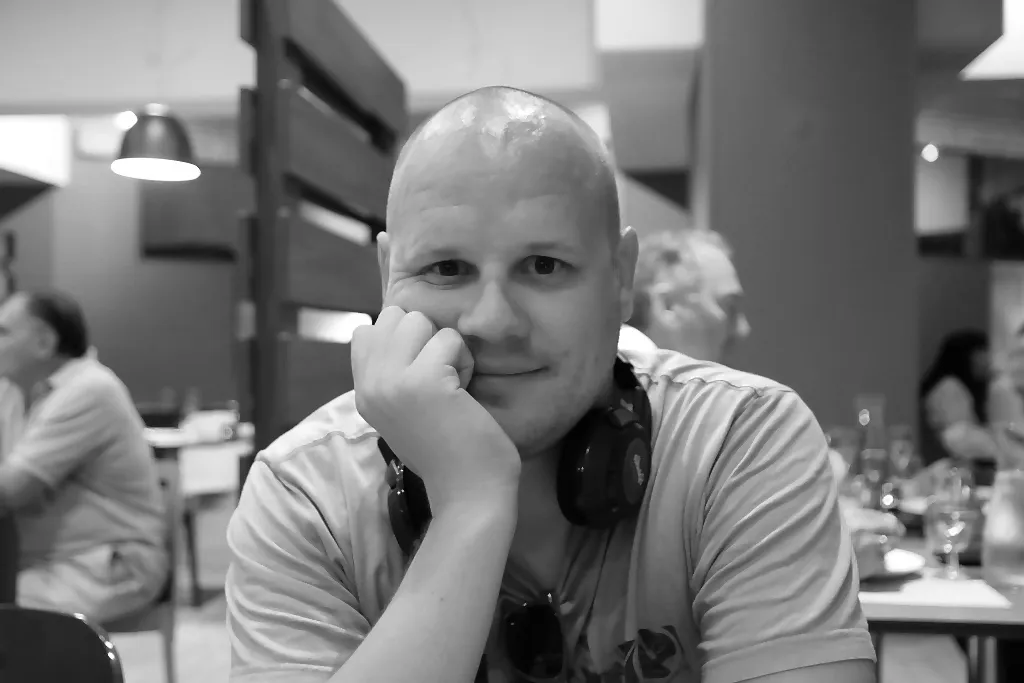
It was a cloudy morning in Groningen; the sky was filled with ominous clouds. We felt somewhat overwhelmed when we entered Spindle and Voys’ premises on the outskirts of the city. Their office, which is situated in a renovated old factory, is very impressive; its huge spaces and high ceilings give it an extraordinary character that fits in well with the extraordinary team we were about to meet that day. We wanted to hear, from people who had been practicing Holacracy for over six months, what the experience had been like for them. The first person we talked to was Bob Voorneveld. He spoke freely, with a sense of peacefulness in his voice. He told us about some of the changes that had been reshaping things at Spindle lately. This is Bob’s story:
Implementing Holacracy took a lot of energy, there was even a tipping moment, is this our way forward or are we actually just making it harder for ourselves…
How it used to be
“We didn’t have management in the company. There was a founder, of course, but there was no such thing as a formal structure. Everyone knew what needed to be done and kind of knew who to speak to if something extra was needed. Everyone kind of had a role but it was not formalized. A lot of work belonged to nobody in particular. I was always doing a lot of things that were not in my job description. I was doing purchasing, onboarding new staff and all kinds of minor stuff. Holacracy turned our world upside down.”
Focus on things I’m best at
“Holacracy puts me more at ease. How? Simply because I know exactly who is accountable for what. This works in both smaller and bigger dimensions. For me particularly, the fact that all the smaller activities are taken care of is especially important because I don’t have to think about them or do them anymore. All my colleagues now fulfil their roles in a clear way; everything has become so explicit. This really puts me at ease. I know that I can let go of so many things that used to occupy me and instead focus on what I am truly best at — programming.”
Meetings: the most crucial change
“In my opinion, one of the main advantages brought by Holacracy is the nature of our meetings. They are now organized around important topics and people want to bring agenda items! Before, we used to get together in one round and everyone would say what was on their minds and what they needed help with. However, the big issues never made it to the table; it was all minor, operational stuff. Now, we no longer have to spend valuable time on explaining what we did last week and what we are about to do next. We only bring in the subjects that really matter or that we really need help with. In short, meetings are quicker, more to the point and they address what matters to us.”
Peace of mind
“In the past, as in any other company, we had a few emergencies. It used to bother me a lot whenever that happened. Now we have a role that handles emergencies. For example, if a customer calls with some problem, it is so quick; we don’t have to wonder who should handle it; instead we know exactly who is responsible at that time. In the past, these things would occupy my mind; I would be concerned. Now I can just let go. Before, I would feel this kind of burden all the time, until the urgent problem was solved. Now I feel at ease.”
As we talk about Bob and the most crucial changes in his work life, the conversation moves into another direction. Bob mentions the founder, Mark Vletter. It was he who felt it was important for people to have authority in their work and he decided to use Holacracy as a tool for this. This brought big changes to the way Spindle and Voys work and to the relationships and dependencies between Mark and everyone who works at the company.
Founder’s state of mind
“Before Holacracy, if Mark said ‘Bob, go left,’ I would most likely go left. Now we assess things for ourselves and make our own decisions within our roles. Of course, no one questions the big picture; we all fully support it, but when it comes to choosing the right tech solutions, we have the full authority to make a decision. I fill roles that fit in with my expertise; these are the subjects I am best at. Therefore it feels right for my roles and for Spindle’s goal to just be honest, play by the rules and when needed, to say ‘Sorry Mark, but this is my thing, and it is my decision to make. This is how we’re going to do this.’ ”
What do you think; how has this change influenced Mark?
“I think that it has put him at ease. Of course, he can take responsibility at any time, if he wants to, but he needs to step into the role to check and see if it is really something that he should be influencing. It is easier for him now because he does not have to be involved in everything. As long as the train is running in the right direction, he has peace of mind. And he knows that with our roles and projects all aligned towards the overall purpose, Spindle is on the right track. Honestly, I think he enjoys this new state.”
The conversation went on. After sharing his observations of the changes that Holacracy brought for himself as well as for the power structure, Bob, with a smile on his face and a glint of amusement in his eyes, shared some insights into the changes that took place in the team of nerds that he is a part of.
Nerds going explicit
“I think that with Holacracy the idea of a problem, tension or roadblock has changed significantly. Holacracy made everything explicit. People have tensions that I had no clue about. They come to the governance meeting and talk freely about missing accountabilities that they need in order to pursue their goals and energize their accountabilities in an even more effective way. We want to improve and achieve even better results. It is in our DNA. We really started using the empowerment that Holacracy brings. And I must say, making it all explicit, especially within a group of nerds, feels great!”
We are a tech company and to make the most of our work, we need tech people to be in charge.
How we hire
“Recently, one of my colleagues felt that it would be beneficial to hire a new person who would specialise in a particular language we needed. He himself drafted a role, proposed it during a meeting, no one raised objections and we adopted his proposal. That’s how simple and easy it was! This would not have happened a year ago. We would have the same need, but no one would make this explicit. No one would come up with a clear proposal that would work for us so fast. It is not HR who decides now; the decision about who is needed comes from the technology people. Therefore, the decisions we make are more accurate and really meet our current needs.”
Productivity Boost
“I am seeing that, as a team, we are getting more and more effective. People are focused on particular items; no one feels the burden of minor details getting in the way. Of course, we are growing; there is a lot more to be done. But I think we are more effective now than we were in the past and one of the reasons for this is Holacracy. Frankly, I think we actually work more now. It’s not like we have to, but we just want to do more! It feels like we are becoming leaders in our roles, we are stepping up more than before and we make more changes on a daily basis. I think this is happening because Holacracy provides the foundation for this; it feels more comfortable and safer to take action.”
What would it be like if we chose managerial structure…
“I experienced hierarchy at my previous workplace. If we went the other way, if we had managers here, these managers would not care at all about technical stuff, because they would not know much about it. In the past, my manager just tried to keep people happy, but there was nothing about the technical side of my work. We are a tech company and to make the most of our work, we need tech people to be in charge. With the Holacracy system, people who know a lot about technology have become empowered to lead the way; they know what is best for the product and the client and they get to make decisions.”
To learn more about self-management, join a community of pioneers and check out our e-learning suite → Self-Management Accelerator
